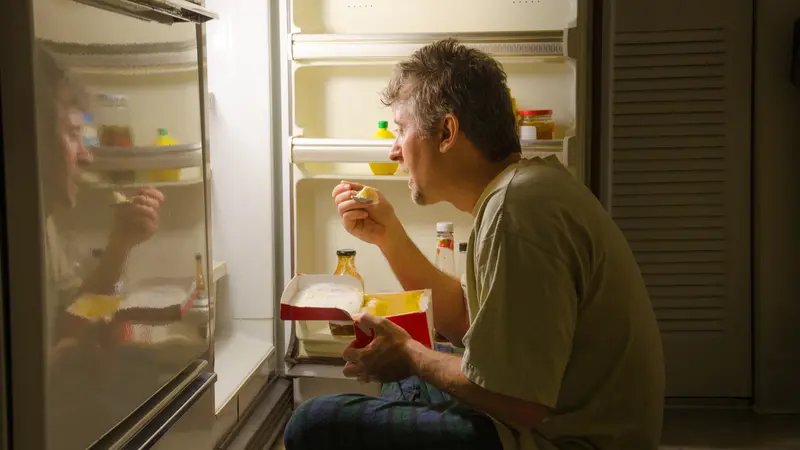

Mental and Behavioral Well-Being

Mental and Behavioral Well-Being
Health and Safety Concerns for Those with Sleep-Related Eating Disorder
Abnormal movements, behaviors, emotions, perceptions, and dreams that occur during various stages of sleep, known as parasomnias, affect many people. They can take many forms and can negatively impact a person’s health and safety.
One such parasomnia is sleep-related eating disorder (SRED), which is repeated episodes of rapid binge eating and drinking during asleep. People with SRED sleepwalk into their kitchen and prepare food, which they then eat, often without memory of doing so.
According to the journal Psychiatry, SRED is a condition that 5% of the general population have and it occurs in 9–17% of people with eating disorders. Some 70% of people with SRED experience episodes of nightly eating—they may be partially awake—that often seem out of control. They may eat foods they wouldn't typically consume during the daytime. About 65% might consume a strange combination of foods or inedible substances like buttered cigarettes and frozen foods.
The Cleveland Clinic says people between 20 and 40 years old are more likely to develop SRED, which is more common in women. Many with the disorder diet during the day, which leaves them hungry and susceptible to nightly binge eating. In certain cases, individuals have a history of drug abuse, alcoholism, or other sleep disorders.
SRED can have health implications including weight gain and the development of metabolic conditions such as elevated cholesterol or type 2 diabetes, and it can cause injuries like burns and lacerations. Sufferers often feel tired, develop tooth decay from eating sugary foods, and can become sick from ingesting toxic substances or inadequately cooked food. Those who believe they have SRED should contact a sleep expert who can help them curb their nocturnal binges.
Treatment may include stress and anxiety management, counseling, limiting alcohol and caffeine, and sometimes prescription medication.
REFERENCES
Asp, K. (2021, June 11). Sleep related eating disorder: Signs, symptoms, causes and treatment options. AAST/The Community for Sleep Care Professionals. https://www.aastweb.org/blog/sleep-related-eating-disorder-signs-symptoms-causes-and-treatment-opti…


 By
By







